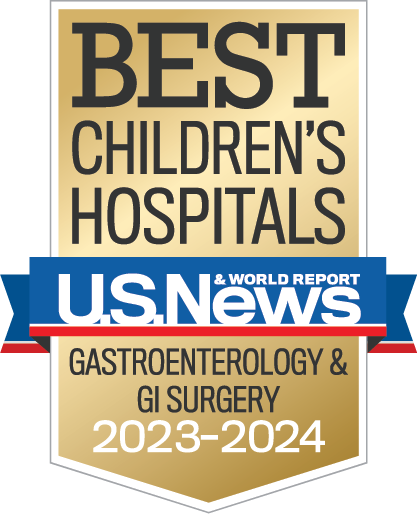- Doctors & Departments
-
Conditions & Advice
- Overview
- Conditions and Symptoms
- Symptom Checker
- Parent Resources
- The Connection Journey
- Calm A Crying Baby
- Sports Articles
- Dosage Tables
- Baby Guide
-
Your Visit
- Overview
- Prepare for Your Visit
- Your Overnight Stay
- Send a Cheer Card
- Family and Patient Resources
- Patient Cost Estimate
- Insurance and Financial Resources
- Online Bill Pay
- Medical Records
- Policies and Procedures
- We Ask Because We Care
Click to find the locations nearest youFind locations by region
See all locations -
Community
- Overview
- Addressing the Youth Mental Health Crisis
- Calendar of Events
- Child Health Advocacy
- Community Health
- Community Partners
- Corporate Relations
- Global Health
- Patient Advocacy
- Patient Stories
- Pediatric Affiliations
- Support Children’s Colorado
- Specialty Outreach Clinics
Your Support Matters
Upcoming Events
Colorado Hospitals Substance Exposed Newborn Quality Improvement Collaborative CHoSEN Conference (Hybrid)
Monday, April 29, 2024The CHoSEN Collaborative is an effort to increase consistency in...
-
Research & Innovation
- Overview
- Pediatric Clinical Trials
- Q: Pediatric Health Advances
- Discoveries and Milestones
- Training and Internships
- Academic Affiliation
- Investigator Resources
- Funding Opportunities
- Center For Innovation
- Support Our Research
- Research Areas

It starts with a Q:
For the latest cutting-edge research, innovative collaborations and remarkable discoveries in child health, read stories from across all our areas of study in Q: Advances and Answers in Pediatric Health.


Colorado Center for Celiac Disease
Celiac Disease in Children
Parents and caregivers know their kids best. That’s why we put families at the center of every care team.

What is celiac disease?
Celiac disease is an autoimmune disorder that damages the small intestine. It is estimated that between 1% and 3% of people could have celiac disease, but most remain undiagnosed.
Some children with celiac disease have many symptoms, including diarrhea, constipation, abdominal pain, bloating, nausea, vomiting, poor growth, fatigue, and mood and behavior problems. Others have minimal or no symptoms despite having significant damage to their intestines.
The disease is triggered when children with certain genetic risk factors eat gluten, a protein found in wheat, rye and barley. People aren't born with celiac disease, but they might be born with the genes that put them at risk for getting it.
What causes celiac disease?
Researchers have identified two genes that put children at high risk for celiac disease: HLA-DQ2 and DQ8. Both genes are common, with about 40% of the population in the United States having one or both of the genes. However, only a small subset of people with these genes will go on to develop celiac disease over time as they eat a regular diet that includes gluten.
Celiac disease can be triggered by a viral illness or by developing another autoimmune disease first. Other times, the trigger is not clear. Ongoing research may help us better understand why some people who are risk for celiac disease develop it while others do not.
Who gets celiac disease?
Since the genes are so common in the general population, many people are at risk of possibly developing celiac disease. However, individuals with type 1 diabetes, autoimmune thyroid disease (Hashimoto's or Graves' disease), and first-degree relatives of someone with celiac disease have a higher risk.
People with these risk factors should be screened for celiac disease, even if they do not have symptoms. Other groups at increased risk include people with Down syndrome or other genetic conditions, as well as selective IgA deficiency. We recommend screening every one to three years for first-degree relatives who are under 18 years old and screening every five years for first-degree relatives who are over 18 years old.
What are the signs and symptoms of celiac disease in children?
The symptoms for celiac disease are different for different people. Some children may grow poorly or have trouble gaining weight and can be very sick with vomiting, diarrhea, abdominal pain, and irritability or other mood and behavior problems. Other children may have minimal symptoms. Symptoms like progressive bone thinning or iron deficiency may not become apparent until adulthood.
What tests are used to diagnose celiac disease in children?
Information from several tests can help diagnose celiac disease. This could include a combination of the following:
- A blood test uses a sample of blood to determine the presence of celiac disease.
- An upper intestinal endoscopy with biopsy is a procedure that uses a thin, flexible tube with a lighted camera on the end to view linings of the digestive system. Our providers take a tissue sample for lab testing.
- A genetic test is used to determine the presence of genes that are commonly associated with celiac disease.
What to expect from a celiac disease test
We initially test for celiac disease with a blood test called a tissue transglutaminase antibody test, and we confirm the diagnosis with a biopsy, or tissue sample, of the small intestine. We obtain the tissue sample through an upper intestinal endoscopy, during which your child will be in a deep sleep under general anesthesia to prevent pain.
Our pediatric gastroenterologists will use a small camera on a scope that guides them as they take small samples of tissue from the intestine, esophagus and stomach. Then, they’ll examine the tissue in the lab under a microscope.
How do we diagnose celiac disease in children?
We typically require a variety of tests and analyses to confirm the diagnosis of celiac disease and rule out other possible conditions that may be causing symptoms. However, there are some situations where a diagnosis can be made based on blood tests alone.
It is important to meet with a pediatric gastroenterologist as soon as your child has a positive celiac disease blood test so that we can determine the best individual diagnosis and treatment plan for your child.
How is celiac disease treated?
There is no cure for celiac disease nor is there medication. Because of this, treatment focuses on controlling the disease through a lifelong, strict gluten-free diet to stop damage to the intestines. If your child is diagnosed with celiac disease, removing all gluten from their diet will allow their intestines to heal and will improve their symptoms. Make sure that your child has thorough testing and receives a positive diagnosis before you start a gluten-free diet.
At the Colorado Center for Celiac Disease, a registered dietitian with special expertise in celiac disease will help your family learn about a gluten-free diet. Because a change in diet can be challenging for a child, a behavioral psychologist with expertise in celiac disease may also meet with you to help with the transition.
Children with celiac disease may also need regular blood tests to make sure they are absorbing enough nutrients from food. Your child's primary care doctor and pediatric gastroenterologist will pay special attention to your child's growth and development.
Why choose us for the treatment of your child's celiac disease?
When screening for and diagnosing celiac disease, it is very important to understand the type of test used for diagnosis and its limitations. For example, a positive autoantibody test doesn't necessarily mean that your child has celiac disease, but it does make it more likely. Because we are very familiar with these types of tests and results in children, we can often accurately determine the likelihood that your child has celiac disease.
The physical and mental wellbeing of our patients and families is our top priority. We are here to help you and your child manage and monitor this lifelong disease. Our celiac disease class, led by a skilled dietitian with special expertise and interest in celiac disease, provides resources for starting and living a healthy gluten-free lifestyle. We also offer continuing classes for patients and their families, and many have found a support system through our Center. And from a mental perspective, our psychologist has special expertise in celiac disease and meets with recently diagnosed children and their families to help them navigate potential mood and behavior problems throughout childhood.
Learn about the Colorado Center for Celiac Disease.
If my child doesn't have any noticeable symptoms, should they still avoid gluten?
Yes. Eating gluten can still damage the intestines even if symptoms aren't apparent. Gluten can also increase the risk of various complications like osteoporosis (weak bones) and cancer.
Should my child restrict physical activity?
No. Physical activity is encouraged as long as your child feels well enough to participate.
Is any amount of gluten OK?
There may be times when a small amount of gluten is not purposely ingested. This is fine, although the goal is to minimize exposure as much as possible.
Is there gluten in other items besides food?
Yes. Gluten can be found in things like medications, sunscreen, soap, shampoo, conditioner and even Play-Doh. Gluten needs to be ingested for it to be harmful to a child with celiac disease, so it's not necessary to avoid these items unless accidental ingestion is a concern. Gluten-free versions of these items are available.
Helpful resources
- The NASPGHAN Foundation for Children's Digestive Health & Nutrition offers patient education materials for children and families.
- The Celiac Disease Foundation provides in-depth information about celiac disease and a gluten-free diet.
- The Denver Chapter of the National Celiac Association is a support group for patients and families living with celiac disease. The group plans social outings, hosts gluten-free dining events and offers meetings that review the latest gluten research.
Next steps
-
Would you like to learn more about us?
Learn more about the Colorado Center for Celiac Disease -
Do you have questions about your child’s condition?
720-777-3825 -
Want a second opinion?
Get started

Compassionate care, wherever you are
We’re here when you need us. Telehealth appointments are available across every specialty, so you can get the high-quality care we’ve always offered from the comfort, privacy and convenience of home.
See if telehealth is right for you
Get to know our pediatric experts.

Caroline Meyer, MD
Gastroenterology - Pediatric, Pediatrics

Jilayne Smith, CPNP-AC
Certified Pediatric Nurse Practitioner
Patient ratings and reviews are not available Why?

Alexandra Kilgore, MD
Gastroenterology - Pediatric, Pediatrics

Amy Feldman, MD
Gastroenterology - Pediatric, Pediatric Transplant Hepatology



 720-777-0123
720-777-0123



